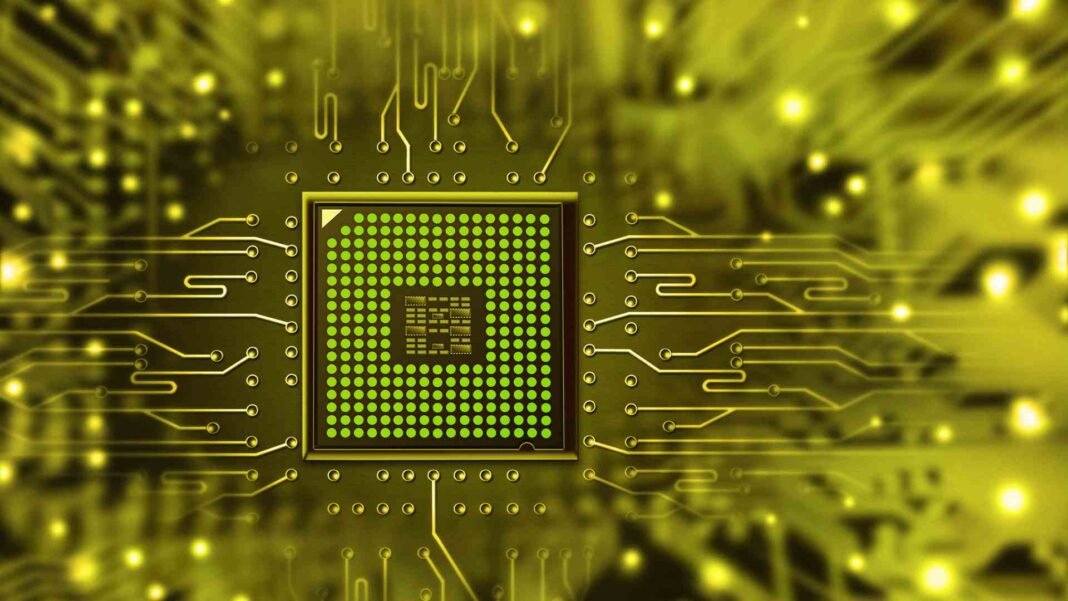Google recently announced a significant breakthrough in quantum computing with the introduction of its new quantum chip, named “Willow.” This advancement promises to bring practical quantum computing closer to reality, potentially transforming various fields such as drug discovery, energy solutions, and climate change mitigation.
The Willow Chip: A Game Changer
During a presentation, Hartmut Neven, the founder of Google Quantum AI, highlighted the capabilities of the Willow chip. He stated that this custom chip can perform computations in mere minutes that would take the most advanced supercomputers an astonishing 10 septillion years to complete. To put this into perspective, that is a 1 followed by 25 zeros—a number so vast it challenges comprehension.
Neven leads a dedicated team of about 300 researchers at Google who are committed to developing quantum computing technology capable of addressing complex problems that traditional computers cannot solve. According to Neven, Willow represents a crucial step toward creating a useful quantum computer that can have real-world applications.
Practical Applications of Quantum Computing
Google’s CEO, Sundar Pichai, emphasized the potential applications of quantum computing in various sectors. He noted that Willow could play a vital role in areas such as:
- Drug Discovery: Accelerating the process of discovering new medications by simulating molecular interactions more efficiently.
- Fusion Energy: Contributing to the development of safe and sustainable fusion power solutions.
- Battery Design: Enhancing energy storage technologies through better material design.
While practical quantum computers are still several years away from being fully realized, the progress made with Willow marks an important milestone in this journey.
The Importance of Error Correction
One of the most significant challenges in quantum computing has been error correction. Regular computers use bits (0s and 1s) to process information, while quantum computers utilize qubits, which can represent both 0 and 1 simultaneously. This unique property allows quantum computers to explore numerous possibilities at once but also introduces complexities related to computational errors.
Google’s Willow chip demonstrated a breakthrough in error correction techniques. Traditionally, adding more qubits to a system would increase errors; however, Willow showed that it could reduce errors exponentially as more qubits were added. This finding is crucial for building practical quantum computers and was published in the prestigious journal Nature. Julian Kelly, Google’s director of quantum hardware, described error correction as the “end game” for quantum computing and expressed confidence in their progress.
Global Investment in Quantum Technology
The race for advancements in quantum technology is not limited to Google. Both the United States and China have made substantial investments in this field, with global funding totaling around $20 billion over the past five years. This financial commitment underscores the importance of quantum research and its potential impact on future technologies.
Moreover, governments are recognizing the strategic significance of quantum computing. As a result, there are increasing restrictions on exporting sensitive technologies related to quantum research. This competitive landscape highlights the urgency for companies like Google to innovate and maintain leadership in this transformative area.
Future Prospects
While Google’s Willow chip represents a significant advancement, experts caution that practical applications of quantum computing are still on the horizon. The development timeline remains uncertain; however, the progress made thus far provides hope for breakthroughs that could revolutionize industries.
The implications of successful quantum computing extend far beyond computational speed. If harnessed effectively, this technology could lead to innovative solutions for some of humanity’s most pressing challenges—ranging from health crises to environmental sustainability.
Google’s announcement regarding the Willow quantum computing chip marks an exciting chapter in the evolution of technology. By achieving unprecedented computational capabilities and making strides in error correction, Google is paving the way for future advancements in quantum computing.
As researchers continue their work on this groundbreaking technology, we can anticipate significant changes across various sectors. The potential applications are vast and varied, promising improvements in drug discovery, energy production, and much more. While we may not yet be at the point where practical quantum computers are commonplace, developments like Willow bring us closer to realizing that vision.
The future of computing looks promising as companies like Google lead the charge into this new frontier of technology.






